“Explore the inspiring journey of Ratan Tata (1937-2024), a visionary leader who transformed dreams into reality. Discover his remarkable contributions to business, innovation, and philanthropy.”
Introduction
Ratan Tata (28 December 1937 – 9 October 2024) is one of the most respected figures in India’s business world. As the former chairman of Tata Sons, he transformed the Tata Group into a global powerhouse. This blog post will explore his life journey and highlighting his significant achievements and contributions to society.
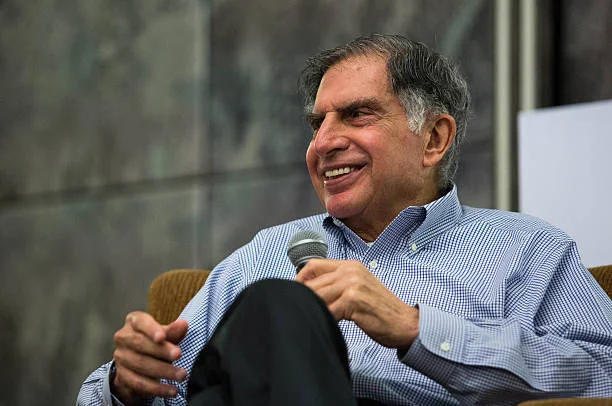
Ratan Tata’s Life
1. Early Life
Ratan Tata, one of India’s most prominent and respected business leaders, was born on December 28, 1937, in Mumbai, India. He was the son of Naval Tata, a prominent industrialist, and Soonoo (Wadia) Tata, who hailed from a family with a rich lineage in the business world. Ratan’s early life, however, was marked by significant personal challenges.
- Date of Birth: December 28, 1937
- Place of Birth: Mumbai, India
- Family Background:
- Grandson of J.R.D. Tata, a pioneering industrialist.
- He was born into a well-known Parsi family.
2. Education
- Schooling:
- Attended the Cathedral and John Connon School in Mumbai.
- College:
- He was graduated from Cornell University with a degree in architecture.
- Studied advanced management at Harvard Business School.
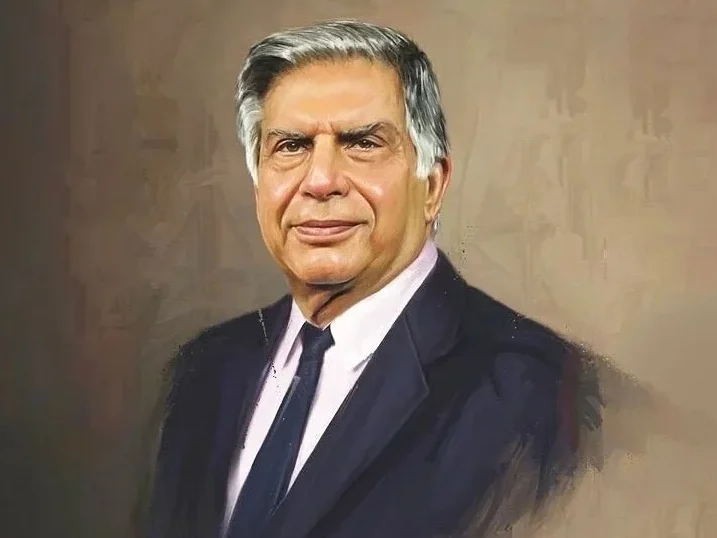
3. Early Career
- Tata Group: Joined Tata Group in 1962.
- First Job:
- Worked on the shop floor of Tata Steel in Jamshedpur.
- Initial Roles:
- Held various positions in the group, learning about the business from the ground up.
4. Chairmanship of Tata Group
- Becoming Chairman: Became the chairman of Tata Sons in 1991.
- Transformational Leadership:
- Focused on modernization and expansion.
- Introduced innovative products like the Tata Indica, India’s first passenger car developed by a domestic company.
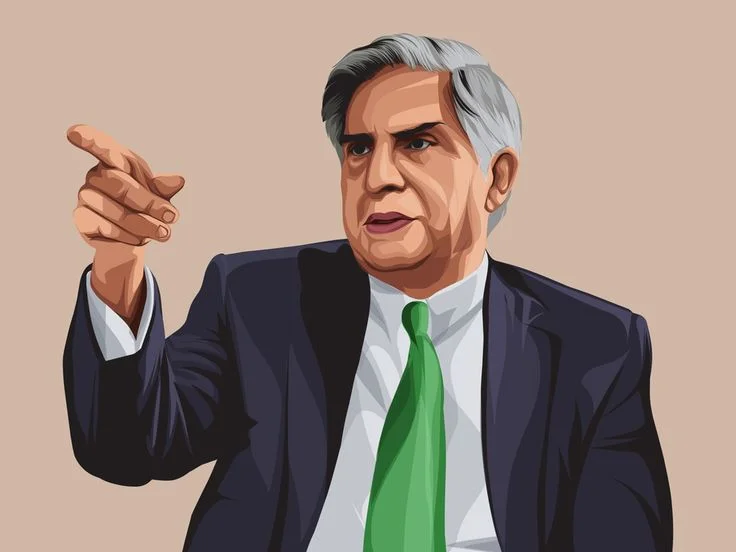
5. Key Acquisitions and Initiatives
- Global Expansion:
- Acquired brands like Tetley Tea, Jaguar Land Rover, and Corus Steel, making Tata Group a global player.
- Corporate Social Responsibility:
- Increased the emphasis on ethical business practices and community development.
6. Philanthropy and Social Work
- Trusts and Foundations:
- Significant contributions to health care, education, and rural development.
- Setting Up Initiatives:
- Launched initiatives to support education and health in India, including the Tata Trusts.
7. Retirement and Legacy
- Retirement:
- Stepped down as chairman in 2012.
- Continued Influence:
- Remains an influential figure in Indian business and philanthropy.
- Awards and Recognition:
- Received numerous awards, including the Padma Bhushan and Padma Vibhushan, India’s second and third highest civilian honors.
8. Personal Life
- Interests:
- Passionate about aviation, animal welfare, and sports.
- Personal Challenges:
- Overcame challenges in both personal and professional life with resilience.
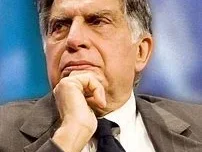
9. Conclusion
- Impact on India:
- Ratan Tata’s vision and leadership have significantly shaped India’s industrial landscape.
- Inspiration:
- His life story inspires many to strive for excellence while giving back to society.
Ratan Tata: A Future Vision
Ratan Tata has left an influence on many in more than just business, as this visionary has developed the socio-economic structure of India under his leadership. The Tata Group, under the leadership of Ratan Tata, stood as a symbol of quality and trust with strong values of ethics and with a focus on customers. Making money was the last thing he wanted to do; instead, he wanted to add value and create for society.
A very notable undertaking by Tata was the Tata Nano, which was aimed at basic transport for millions of Indians. The journey had its problems, but Tata set an example of innovation and social responsibility; another aspect emphasized by Ratan Tata during his tenure was sustainable development through green technology and eco-friendly activities within the group.
After retirement, Ratan Tata has spent most of his time mentoring and investing in start-ups alongside young entrepreneurs. An active retired soul, these days, in a reflection of his interest in technology and innovation and his desire to build the next generation of leadership.
Tata Trusts have been philanthropic in health care, education, and rural upliftment touching millions of lives all over India. He is a leader in social causes and corporate responsibility, leading by the highest standard for businesses in India and around the world.
The story of Ratan Tata serves as a testament to the power of vision, integrity, and compassion.
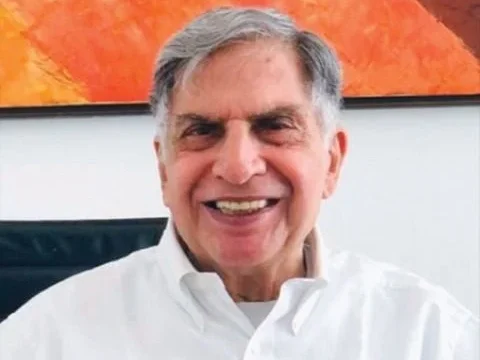
Conclusion
Ratan Tata’s life is a remarkable tale of dedication, innovation, and philanthropy. From his humble beginnings to becoming a global leader, he has left an indelible mark on India and the world. His commitment to social causes and ethical business practices makes him a true role model for future generations.
Conclusion: The Journey of Ratan Tata (1937-2024): Transforming Dreams into Reality
Ratan Tata’s journey from a young, uncertain heir to a pioneering business magnate is a remarkable story of vision, resilience, and transformation. Throughout his extraordinary career, Tata not only led one of India’s most iconic conglomerates, the Tata Group, but also redefined the role of a businessman in a rapidly changing world. His legacy, which spans several decades, continues to inspire countless individuals and leaders globally.
At the core of Ratan Tata’s success was his unwavering belief in values over profits. He understood that business was not just about making money but about creating an impact—whether through innovations that changed industries or through initiatives that uplifted society. Under his leadership, the Tata Group underwent a radical transformation, with the focus shifting from merely managing a conglomerate to fostering a global brand with social responsibility at its heart.
One of the defining moments of Tata’s leadership was his visionary approach to acquisitions and global expansion. Under his guidance, the Tata Group made strategic acquisitions like Tetley Tea, Corus Steel, and Jaguar Land Rover, which elevated the Group’s global standing. Ratan Tata’s bold and calculated decisions, such as purchasing Corus during a time of intense competition, demonstrated his ability to think beyond immediate financial gains and focus on long-term growth. These acquisitions not only diversified the Group’s portfolio but also made India a significant player on the world stage in various sectors, from steel to automobiles.
Yet, Tata’s journey was never solely about business growth. He was always deeply committed to the welfare of India and its people. His philanthropic efforts, through the Tata Trusts and various charitable initiatives, have had a far-reaching impact, improving education, healthcare, rural development, and more. Tata’s personal belief that businesses should serve society in a meaningful way shaped the corporate culture of the Tata Group, making it one of the few organizations in the world where business ethics and social impact are treated as equally important.
Perhaps one of the most iconic contributions from Ratan Tata was the development of the Tata Nano, the world’s most affordable car. In a nation where millions were still without reliable access to transportation, Tata dreamed of creating a car that could provide safe, affordable mobility to the masses. Despite facing significant criticism and challenges during its launch, the Tata Nano represented the epitome of Ratan Tata’s commitment to making a difference in the lives of ordinary people. Though the Nano’s commercial success was limited, it remains a testament to Tata’s innovative mindset and his dedication to democratizing technology.
Ratan Tata’s leadership was also characterized by humility and integrity, qualities that endeared him to millions. Unlike many business leaders, he remained grounded despite his immense success. Known for his calm demeanor and thoughtful approach, Tata was a mentor to many and a role model to generations of business leaders. He proved that one can succeed without sacrificing their principles, earning the respect of both peers and competitors alike.
The retirement of Ratan Tata in 2012 did not mark the end of his influence. Even after stepping down as Chairman of the Tata Group, Tata continued to be an active voice in social and economic matters, offering his expertise to various causes and institutions. His post-retirement efforts in mentoring young entrepreneurs and guiding initiatives in technology, healthcare, and education have left an indelible mark on the future of India.
As we reflect on the journey of Ratan Tata, it’s clear that his story is one of turning dreams into reality—not just through strategic business decisions, but through a lifelong commitment to improving the world around him. His work has demonstrated that success in business doesn’t have to come at the expense of social responsibility, and that true leadership involves using one’s position for the greater good.
Ratan Tata’s legacy will continue to inspire future generations of entrepreneurs and leaders. His journey is a powerful reminder that when you combine passion, integrity, and vision, you can not only build a successful business but also make a lasting, positive impact on the world. As we honor his life and work, we are reminded that success is not measured by wealth alone, but by the difference we make in the lives of others. Ratan Tata’s journey—transforming dreams into reality—is a testament to the fact that one individual can change the course of history.

Pingback: Tabla Maestro Ustad Zakir Hussain Passes Away at 73 in the US
Pingback: "Baby Boy Names: Unique Hindu Vedic Names from A to Z, With Meanings"